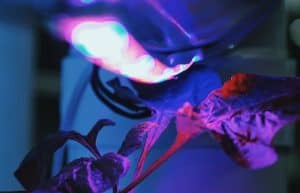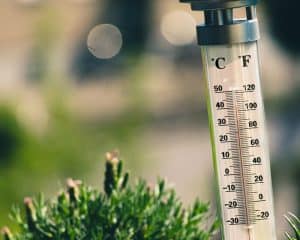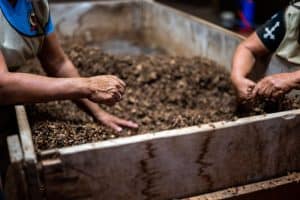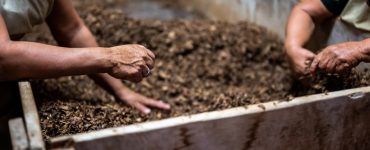Houseplants are a popular way to make any living space feel more alive, fresh, and inviting. It’s no surprise that many people want to know if they can also put worms in their houseplants. The answer to this question is not a simple yes or no. There is a lot of debate surrounding this topic, with both sides having valid points.
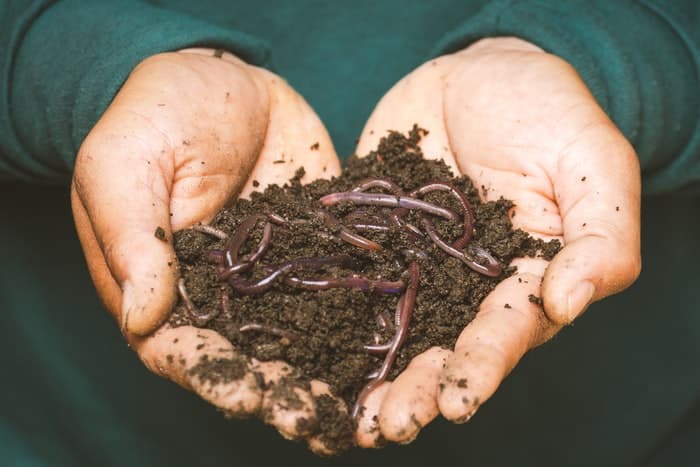
Some people argue that putting worms in your plants helps them grow better and healthier. They claim that the worms eat the organic matter in the soil and help to break it down, making it easier for the plant to absorb nutrients. Additionally, the presence of worms aerates the soil, improving its quality.
Others argue that putting worms in your plants can actually be harmful to them. They claim that the worms can introduce diseases into the soil, or even eat away at the roots of the plant.
Vermicomposting
Vermicomposting is a process of composting using worms to digest organic matter and produce a nutrient-rich soil amendment. The worms eat the organic matter and their digestive process breaks down the materials into a form that plants can easily absorb. The end product of vermicomposting is a dark, crumbly material that is high in humus and can be used to improve the soil fertility and structure.
Organic matter can come from plants, animals, or both. Dead houseplants is a common component of compost because it has high levels of carbon and nitrogen. These elements are essential for plant growth and can be found in small amounts in other types of organic material.
Types of Worms that Can Be Used
There are many types of worms that can be introduced into houseplants in order to improve their health and vitality. Earthworms, Nightcrawlers, and Red Wigglers are the three most common worms used in composting.
Earthworms
The addition of earthworms to a compost pile accelerates the decomposition process. The earthworms eat the organic matter and create worm castings, which are high in nitrogen, phosphorus, and potassium. The castings help to improve the structure and fertility of the soil.
Nightcrawlers
The Nightcrawler is an excellent composting tool because of its high nitrogen content. The high nitrogen content helps to speed up the composting process and break down organic matter faster. Additionally, the Nightcrawler’s burrowing action helps to mix and aerate the compost pile, further aiding in the composting process.
Red Wigglers
Red Wigglers are used in composting because they are very efficient at breaking down organic matter and turning it into nutrient-rich soil. Their bodies contain high levels of nitrogen, phosphorus, and potassium, which makes them the perfect candidate for breaking down food waste, plant clippings, and other organic materials. By adding Red Wigglers to your compost pile, you can create rich, fertile soil in a matter of weeks.
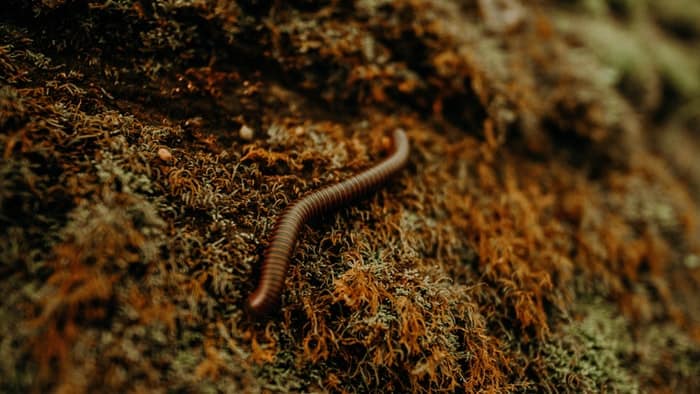
How to Add Worms to Your Plants
Many people enjoy the presence of plants in their homes, but may not have the time or ability to care for a garden. Fortunately, there is an easy way to add worms to your houseplants and get the benefits of organic gardening without any of the work.
To add worms to your houseplants, you will need a potting soil mix, compost, and earthworms. Start by adding a layer of potting soil mix to the bottom of your pot. Next, add a layer of compost. Finally, add a layer of earthworms. Gently press down on the topsoil to compact it and ensure that the worms are well-covered. Water your plants thoroughly using room-temperature water.
What to Do if The Worms Die
If your worms die while in houseplants, don’t worry! It’s not the end of the world. There are a few things you can do:
First, check the moisture levels in your compost. Worms need a certain amount of moisture to survive, so if it’s too dry, they will die. Add some water to the pot until the moisture level is right.
Second, make sure that you’re providing enough food for the worms. If there’s not enough food for them to eat, they will die. Add some more organic material to the pot to give them something to eat.
Finally, make sure that your bin is in a shady spot. Worms don’t like extreme temperatures, and if it’s too hot or too cold, they will die.
Conclusion
In conclusion, using worms in your plants is a great way to improve their health. Worms help to aerate the soil, providing your plants with the nutrients they need to grow healthy and strong. Additionally, worms can help to control pests and diseases, making your garden healthier overall. If you are looking for an easy and affordable way to improve your garden’s health, using worms is a great option.


